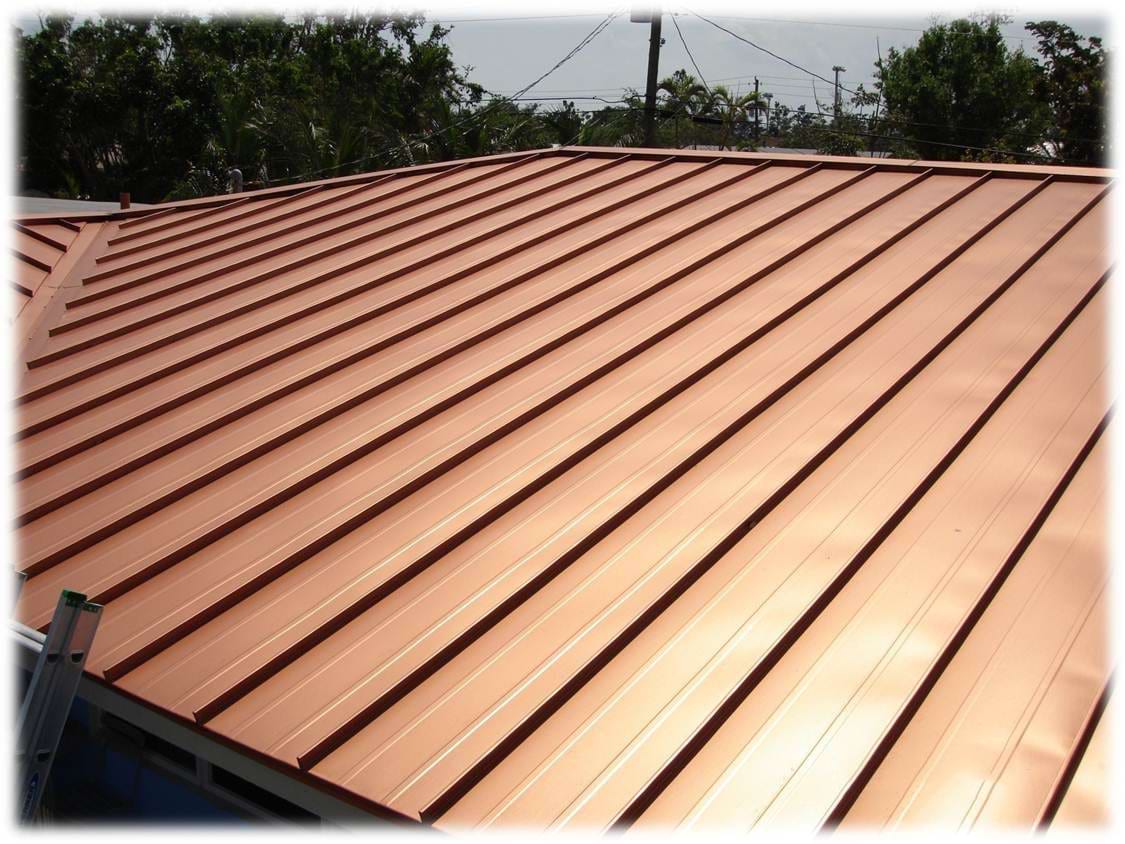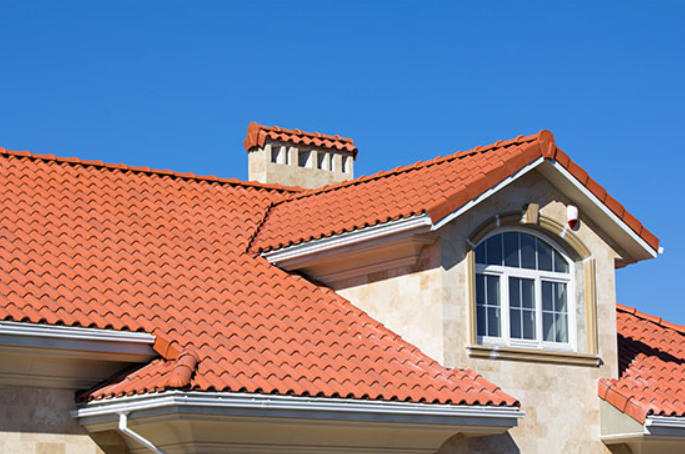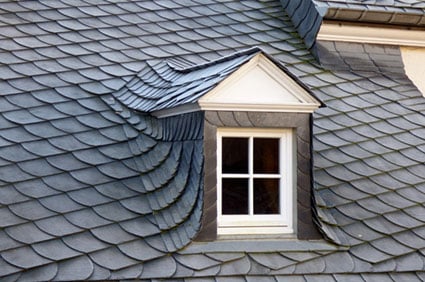11 Pros & Cons of Metal Roofs
Are you considering a metal roof for your home or business? If you’re in the market for a new roof or are looking to replace your existing roof, one of your first steps should be to think about what type of roof you want to install. Each roofing material has its own advantages and disadvantages, and the choice you make will determine the cost, performance, maintenance requirements, and durability of your new roof.
For example, many of today’s homeowners and business owners are considering a metal roof. Metal roofing is a fantastic option, but like all types of roofing materials, metal roofs have their pros and cons.
Let’s take a closer look at metal roofing so you can decide whether a metal roof is a good option for your home or business.
What Is Metal Roofing?
Metal roofs are made up of metal materials, such as steel, aluminum, or copper. This type of roofing is built by fastening or laying panels or sheets of metal onto the structure of the roof.
Available in various types and styles, metal roofing has been rapidly growing in popularity in homes and businesses across the United States over the last few years, and we expect them to continue to trend this year and beyond.
Pros of Metal Roofs
Compared to other types of roofing, metal roofs have several advantages. Here are some of the benefits that inspire homeowners and business owners to install metal roofing.
1. Low Maintenance
Metal roofs are low maintenance—especially compared to asphalt roofs.
Once installed, metal roofs require only minimal maintenance. Instead of regularly checking for missing or broken shingles and installing replacements, you simply need to remove debris like leaves or branches and keep the gutters clean.
2. Lifespan
The longevity of metal roofs as well as their cost effectiveness over time makes them an attractive option. While an asphalt shingle roof typically lasts between 15 and 20 years before needing to be replaced, a properly installed metal roof has a lifespan of anywhere from 40 to 100 years, depending on the type of metal materials used.
Thanks to their long lifespan, metal roofs save money in the long run.
3. Durability
Metal roofs are extremely durable. They can withstand wind gusts up to 140 miles per hour as well as impacts from hail, debris, or other falling objects. You can also add a rust-proof coating to prevent the roof from cracking or corroding.
Additionally, thicker metal roofs are even more durable, allowing homeowners and business owners to choose the level of durability they need.
4. Energy Efficiency
Metal roofing is an energy efficient option. Since metal roofs have reflective properties, they reflect heat from the sun instead of absorbing it—allowing you to significantly reduce monthly energy costs in the summer. Installing a metal roof makes it easier than ever for you to affordably keep your home or business at a comfortable temperature.
5. Sustainable & Environmentally Friendly
Asphalt shingles are made of petroleum and must be replaced regularly—which means billions of pounds of shingles get tossed into landfills every year.
Metal roofs, on the other hand, are 100% recyclable. Decades after they are installed, when they finally wear out, the entire roof can be recycled instead of discarded. Additionally, 25% or more of the metal roof itself is made up of recycled materials. Together, these qualities make metal roofs an environmentally friendly roofing option.
6. Resistant to Fires & Rotting
Metal roofs are naturally resistant to mildew, rotting, or infestation from termites or rodents. They are also not readily flammable: The metal roofing material does not carry or transfer fire, making metal roofs ideal for regions where wildfires are common.
7. Aesthetic Appeal
Today, there isn’t any standard look for metal roofs. You have essentially limitless design options as well as a wide range of colors, finishes, and shapes to choose from. Metal roofs are customizable and can be designed to look like other materials like wood, copper, or rusted steel.
Whatever aesthetic style you want to achieve with your metal roof, an experienced metal roofing contractor can design a metal roof that matches your vision.
Cons of Metal Roofs
Even though metal roofs have several benefits, they also come with some disadvantages. If you are considering a new metal roof, keep these issues in mind.
8. High Cost
The initial costs of installing a metal roof are higher than other types of roofing materials. In the short term, a metal roof will cost about twice as much as an asphalt shingle roof, and some metal roofing materials are even more expensive. The additional labor, time, and materials needed to properly install a metal roof also add to the bottom line.
However, in the long term, metal roofs are more cost effective because of their durability and exceptionally long lifespan. Keep in mind that in the time it takes for a metal roof to wear out, you would likely have to pay for at least two asphalt shingle roofs.
9. Oil Canning
Oil canning is when wrinkles, bubbles, or waves appear on the otherwise smooth surface of the metal roof. This issue can occur for a variety of reasons, such as when the metal panels are fastened too tightly together, the substrate is uneven, or the underlayment is warped.
The good news is that oil canning is a cosmetic issue. It does not impact the durability or protective properties of the metal roof. Unfortunately, if oil canning sets in, there is no easy fix. The best way to prevent oil canning is to work with an experienced roofing contractor who knows how to properly install and finish the metal roof.
10. Installation Requirements
The installation process for metal roofs is more complex than for other types of roofing materials. Metal roofs are more labor intensive and require more tools, skills, time, and experience to get the job done right—which increases both the cost of the roof and the time it takes to complete the project.
Work with a professional metal roofing expert to make sure your metal roof is installed correctly and efficiently.
11. Noise
Metal roofs tend to be noisier than other types of roofs. Whenever it is raining, occupants of your home or business will be able to hear the sound of rain hitting the roof and echoing on the metal. During thunderstorms, this noise can be quite loud—and while some people enjoy the sound of rain on a metal roof, others want to avoid the commotion.
Professional roofers can offer several ways to dampen the sound of rain on your metal roof, such as using solid decking to dampen the noise or adding insulation boards between the decking and metal panels to provide an extra layer that can help absorb the sound.
Contact the Chicago Roofing Experts at Champion Roofing
At Champion Roofing, we are a recognized leader in the Chicago roofing industry. Our professional roofing contractors offer a range of services, including roof maintenance, repair, and replacement—all featuring the high-quality work that comes with 30 years of experience serving residents in the Chicago area.
Our roofing team is ready to guide you through your project every step of the way. Whether you want to discuss what type of roof is best for your home or business or are ready to start the installation process, we’re here to help.
Contact us today to get a free quote. Your roof is worth the investment.
.png)



